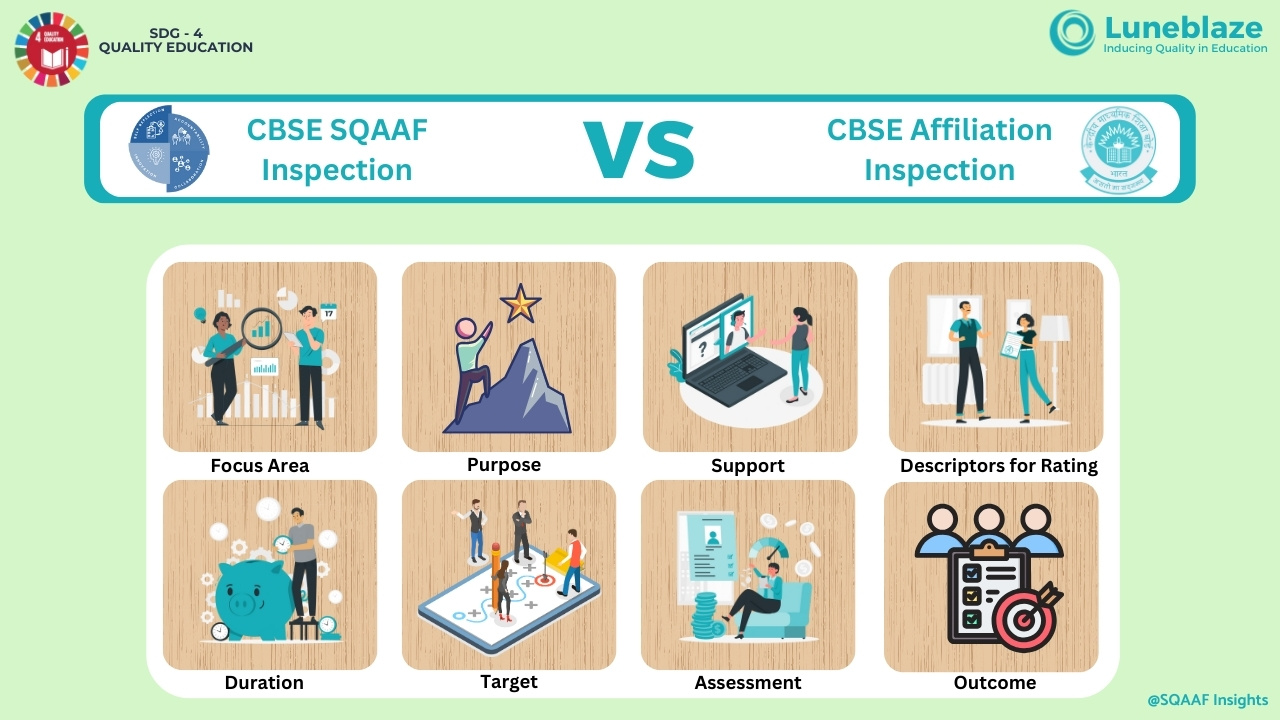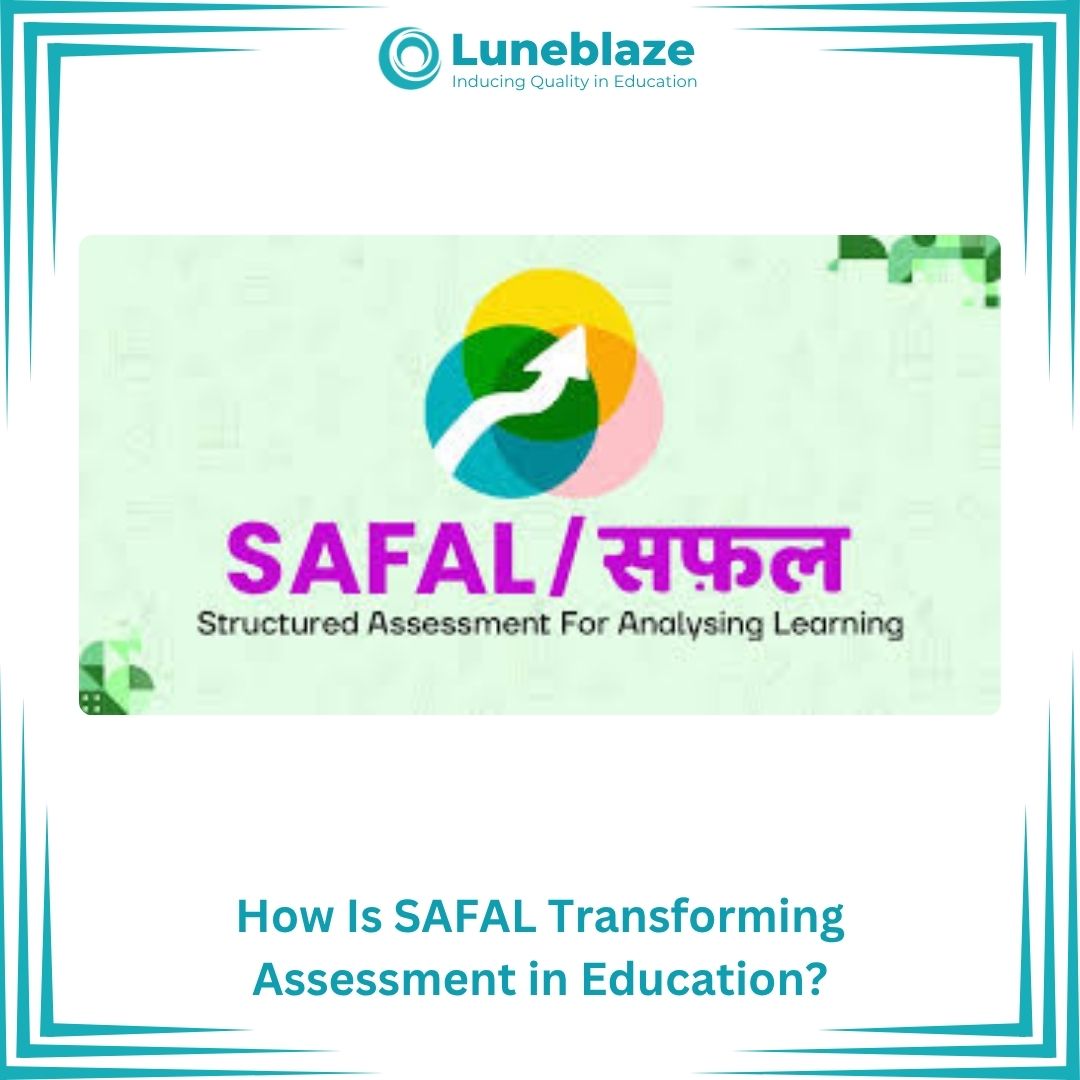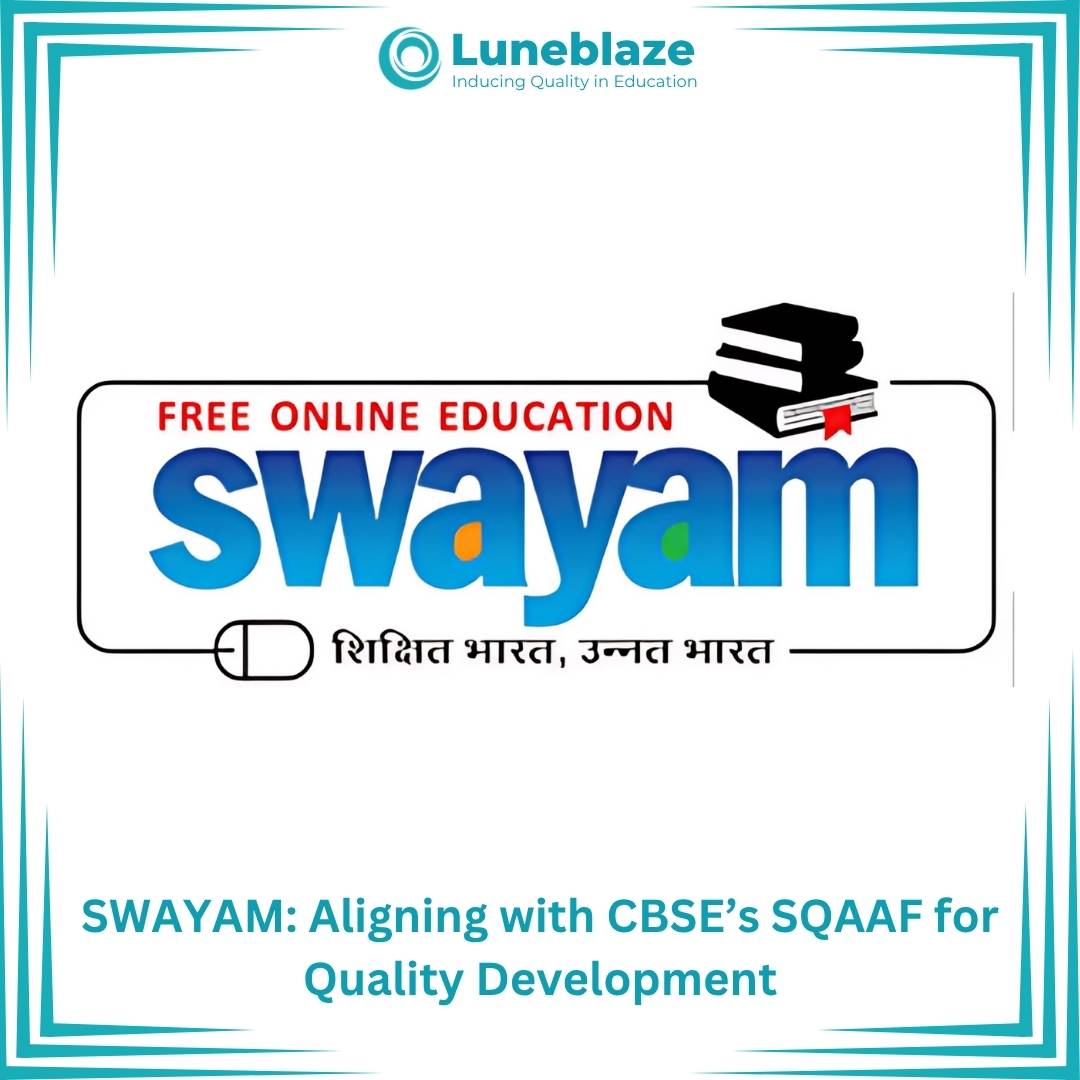Difference in SQAAF and Affiliation Inspection?

Nov 26, 2024
Imagine a school striving for excellence, where every process is carefully reviewed, refined, and enhanced to meet the highest standards. Now, envision a system that not only evaluates performance but also empowers schools to set their own improvement goals and track their progress over time.
This is where two powerful frameworks—the School Quality Assessment and Assurance Framework (SQAAF) and the Outcome-Based Inspection for Affiliation—come into play. Each process plays a distinct but complementary role in shaping a school’s journey toward continuous growth and CBSE affiliation. While both aim to drive Improvements, their Approaches, Focus, and Outcomes differ in several ways. Let’s explore the key Differences between these two Processes, with an emphasis on their Impact on Qualitative Enhancement in School Processes.
Purpose
SQAAF Inspection aims to evaluate the overall quality of education, infrastructure, and resources in an institution to ensure it meets the required standards. On the other hand, the CBSE Affiliation Inspection is primarily conducted to assess whether the institution complies with the guidelines and criteria set by CBSE for granting affiliation.
Focus Area
SQAAF Inspection focuses on a broader spectrum, including curriculum quality, teaching methodologies, student welfare, and overall institutional development. CBSE Affiliation Inspection, however, is more focused on specific aspects like infrastructure, staff qualifications, and compliance with CBSE norms.
Duration
The SQAA operates as a periodic and ongoing Self-Assessment Process, encouraging schools to regularly assess their performance and continuously improve over time. In contrast, the Outcome-Based Inspection for Affiliation occurs at specific intervals, usually when schools apply for affiliation or seek an extension of their affiliation.
Target Group
The SQAA is applicable to both CBSE-Affiliated and non-Affiliated schools, helping them enhance their internal processes and standards. The Outcome-Based Inspection for Affiliation targets schools that have already applied for CBSE affiliation, with the outcome determining whether their affiliation request is approved or rejected.
Descriptors for Rating
The SQAA provides clear, specific, and exhaustive descriptors for self-improvement, guiding schools in identifying areas for growth and setting realistic targets. In contrast, the Outcome-Based Inspection for Affiliation uses a more general rubric to assess schools based on predefined parameters, focusing primarily on the criteria necessary for affiliation rather than ongoing improvement.
Support
The SQAA offers an extensive list of evidence and tools for self-assessment, along with capacity-building programs to help schools strengthen their capabilities. On the other hand, the support for schools in the Outcome-Based Inspection for Affiliation is relatively less comprehensive, although it does offer capacity-building programs for inspectors to enhance their evaluative skills.
Assessment
Under the SQAA, the assessment is a collaborative process where schools engage in self-assessment, often with the assistance of peer assessors who bring specialized skills. These assessors not only evaluate but also mentor schools, guiding them through the developmental continuum. In contrast, the Outcome-Based Inspection for Affiliation relies on skilled inspectors who assess schools against predetermined criteria, focusing on evaluating whether the school meets the necessary standards for affiliation.
Outcome
The outcome of the SQAA assessment is focused on continuous improvement and development, with schools identifying areas for growth and setting targets. On the other hand, the outcome of the Outcome-Based Inspection for Affiliation is more straightforward: schools are either granted affiliation or rejected based on their compliance with the required standards.
Both the SQAA and Outcome-Based Inspection for Affiliation play crucial roles in shaping the quality of schools, though they focus on different aspects. While the SQAA emphasizes continuous self-assessment, collaboration, and ongoing improvement, it encourages schools to set developmental goals and move towards higher standards. On the other hand, the Outcome-Based Inspection for Affiliation is more formal and outcome-driven, assessing schools against defined parameters to determine their eligibility for CBSE affiliation. By understanding the differences between these two processes, schools can better align their efforts to either improve internal practices or ensure compliance with affiliation criteria.
To bridge the gap between these two processes and ensure schools are well-equipped to meet both internal and external standards, Luneblaze offers tailored support. To assist these efforts, Luneblaze provides a comprehensive end-to-end solution to Schools for all their accreditation criteria needs be it Documents & Evidence Creation, Self- Assessment Filing support on CBSE SQAAF Portal, Faculty Trainings, Audits and Consultancy Support. With the help of Luneblaze’s AI enabled solutions, institutions can organize and manage all their data related to accreditation and assessments like SQAAF for schools.
Together, let's raise educational standards. Partner with Luneblaze for SQAAF success. Reach out: sqaa@luneblaze.com
Trusted by
100+
Institutions
worldwide
since 2017
Get started with Accreditation Excellence
Explore how our AI-enabled accreditation solution simplifies the accreditation journey









